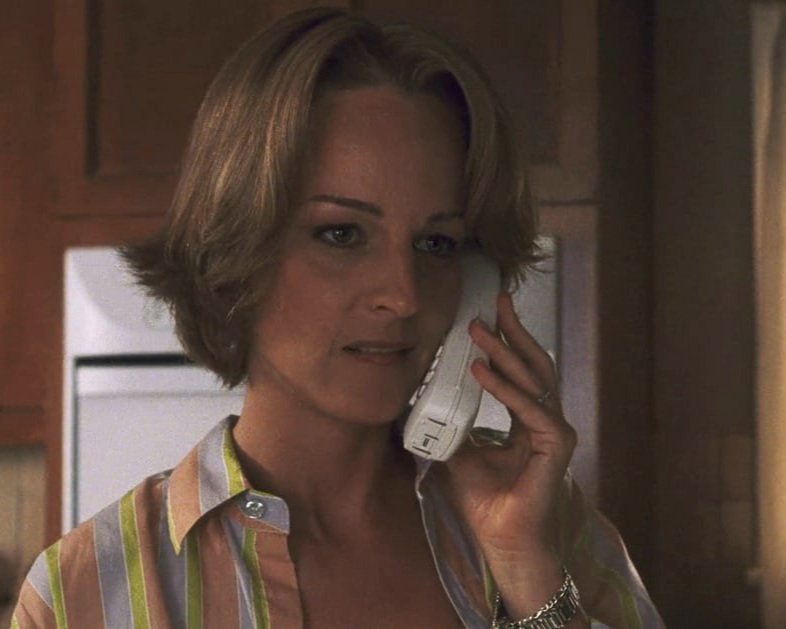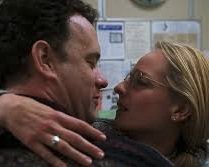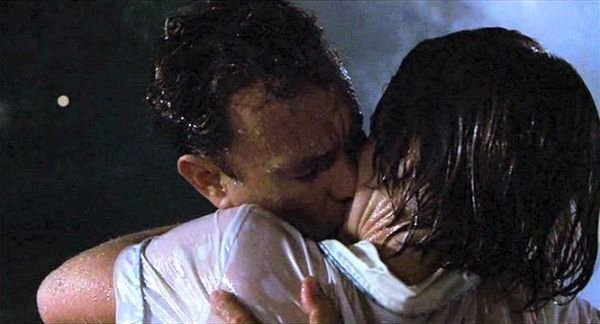Helen Hunt Filmography Part 13: Cast Away
We’re closing out 2000 with Cast Away.
But we’re not talking about Wilson; we’re here for Kelly Frears.
Cast Away (2000) is probably the biggest hit that Helen Hunt was a part of both in terms of box office revenue and cultural staying power. As such you’ve probably seen it, or are at least familiar with it, so I’m not here to talk about the movie as a whole.
What I’m here for is the defense of Kelly Frears (Helen Hunt).
In the comment section on Lettrboxed for this movie there is a lot of hate for Kelly getting married and having a kid in the five years that Chuck was lost on the island. The argument goes that if he is in fact the love of her life as she declares when he returns, she wouldn’t have moved on so fast.
Argument 1:
There was no reasonable expectation that Chuck was still alive.
Kelly quit her dissertation/phd program to organize and oversee the search for Chuck. She has the maps to prove it. She looked for him longer than most people. She did everything short of sailing around in the south pacific herself, to find him. She did her due diligence. She had no logical reason to think he was still alive.
Argument 2:
Time Doesn’t Matter
The loves you lose to death, you love forever.
That love never dies. The ache of loss softens, and the guilt of loving someone else diminishes, but the love of your life remains.
How long that takes is subjective, though most therapists recommend waiting at least a year before starting a new relationship. Five years would generally be considered a reasonable amount of time.
However, the time is irrelevant. She could have waited a year or a lifetime, and still Chuck would be the love of her life.
Argument 3:
People were pressuring Kelly to move on.
When Chuck comes home, she tells him, “I always knew you were alive, I knew it. Everybody said that I had to let you go. I love you. You're the love of my life.”
Nothing makes people uncomfortable like grief. The solution to them seems obvious: move on, find someone else, be happy.
Maybe if people had let Kelly grieve without telling her to move on, she would have done what she knew in her heart was right. Maybe she wouldn’t have married the dentist. Maybe she would have been waiting for Chuck when he got home.
Or maybe she wouldn’t. But if she had been allowed to grieve and process her loss on her timeline, she wouldn’t have the same regret that she has when Chuck comes back.
Argument 4:
Loneliness is a bitch
Do not underestimate the power of loneliness to prompt bad decisions. Loneliness, especially partnered with social pressure, has forged many an ill-considered relationship.
It’s unreasonable to expect Kelly to be impervious to the power of loneliness. She seems to have sublimated her grief and moved on to a relationship decision she wasn’t ready for.
Argument 5:
The Baby doesn’t prove anything.
A number of commenters argue that having a baby indicates a level of commitment and planning that belies having a different love of your life.
Clearly these people don’t know how babies work (which is not surprising for a online comment section).
Babies often come unplanned to people who are not solidly committed to each other.
Kelly’s relationship timeline is never laid out. And while the baby is definitely loved, she could have been completely unplanned.
Or given that Kelly’s age is also undefined, she could have wanted a baby more than she wanted a new love. If having a baby was something she’d always wanted, she may not have felt she had the choice to wait. Biological clocks tick away and don’t wait for the love of your life to maybe show back up.
My Critique:
The part that doesn’t ring true to me is that Kelly gets out of the car and goes home.
I don’t know that she would have permanently left her husband, though I think it would have been worth a conversation. But I think she absolutely would have gone with Chuck for that night. I think the chance to reunite with the love of your life trumps all relational ties, even if only briefly.
I think this movie is one of the most profoundly tragic romances. What should be the culmination of a triumphant tale of indomitable human ingenuity, is met with crushing disappointment.
I know some people love the meet cute with the angel wings woman at the end, but I don’t. To me it seems like slapping a band-aid on this bullet wound. It also further evidences how uncomfortable people are with grief.
Rather that letting the audience sit with Chuck and Kelly in their sadness, rather than letting Chuck have time to mourn his broken dream, the movie throws a cute girl at the problem and says, “See, happily ever after”.
Also add some hypocrisy to the Kelly Frears critics. She’s condemned for having moved on after five years, but Chuck meets a new girl after five minutes and everyone is cool with that.
Personally, I think this would have been better if it ended on a bittersweet note.







